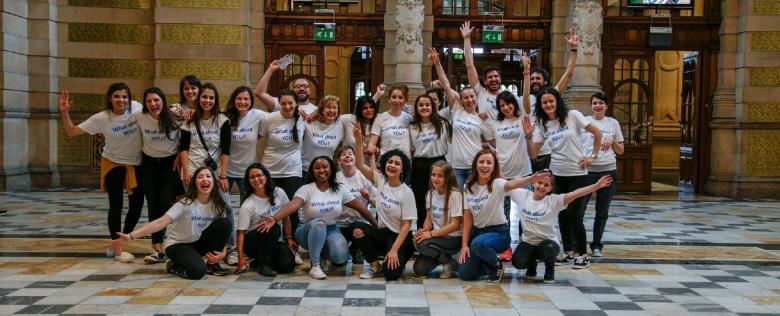
As we celebrate the World Refugee Day and the Refugee Festival in the UK, we wanted to take the opportunity to offer an insight into research that SIRIUS Team at Glasgow Caledonian University has been conducting for the past three years as part of a previous European Commission funded project examining solidarity in Europe at times of crisis and austerity (www.transsol.eu). TransSOL, bringing together researchers from a variety of disciplines and based across eight European countries, has sought to uncover the shape of solidarity towards refugees. In the course of the research at GCU focusing on the UK the legal frameworks that shape asylum policies has been analysed and the team has critically examined those media discourses, articulated predominantly in the UK by some politicians, that have helped to create a hostile environment for refugees.
In contrast to that hostile environment, the research has revealed the pools of solidarity which exist to support refugees in different ways. From a survey of individuals across the UK GCU found discovered solidarity through the everyday actions citizens including donating time or money to the cause of refugees (for example 1 in every 3 people in Scotland has engaged in at least one act of solidarity towards refugees). To better understand how solidarity is organised in the UK the research team interviewed active members of NGOs, charities and grassroots groups that were consistently engaged in offering sometimes multiple forms of solidarity towards refugees such as providing help to meet basic needs such as food, shelter and clothing, assistance with accessing education or training, advice on human rights, as well as the important work of welcoming refugees to the communities that they will now call home.
Across the UK, GCU team spoke to a variety of organisations such as those working with young refugees and who explained to us that despite the barriers that these young people were continuing to face, they wanted to be just like any other young people and their main topic of conversation was football or X Factor. The research also provided an insight into arts organisations that helped to release the creativity of refugees and which highlights the situation facing many. GCU team also discovered organisations focused upon supporting women and children; organisations that had developed years of experience in defending the rights of refugees; organisations that were involved in campaigning to end the detention of refugees as well as those very grassroots organisations, set up spontaneously by people in various towns and cities that were determined to ensure that refugees who arrived in the UK felt welcome.
What GCU research therefore uncovered was that although the policies enacted and the media discourses in the UK have contributed towards creating a hostile environment for refugees, there is evidence of a an ecology of solidarity that stems from the actions of individual citizens to organisations who through a variety of practices and activism seek to create communities where refugees are welcome. These findings will be further explored in SIRIUS.
To showcase some of these findings, and to encourage others to become involved, the SIRIUS and TransSOL team at the Yunus Centre for Social Business and Health at Glasgow Caledonian University organised a flash mob event to engage people with the issue of solidarity towards migrants, refugees and asylum-seekers. The event involved more than 40 people from different nationalities and it took place the 17th June in the main hall of the Kelvingrove Museum during the Glasgow Science Festival. With more than 150 people watching the dance performance, research findings were disseminated and happiness alongside solidarity were promoted.